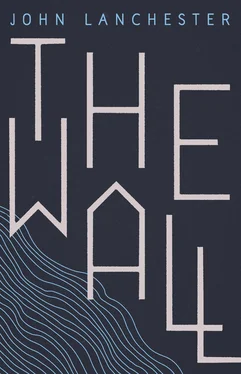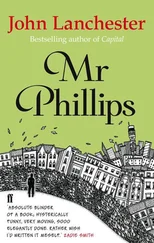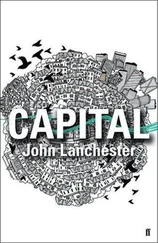John Lanchester - The Wall
Здесь есть возможность читать онлайн «John Lanchester - The Wall» весь текст электронной книги совершенно бесплатно (целиком полную версию без сокращений). В некоторых случаях можно слушать аудио, скачать через торрент в формате fb2 и присутствует краткое содержание. Год выпуска: 2018, ISBN: 2018, Издательство: Faber & Faber, Жанр: Современная проза, на английском языке. Описание произведения, (предисловие) а так же отзывы посетителей доступны на портале библиотеки ЛибКат.
- Название:The Wall
- Автор:
- Издательство:Faber & Faber
- Жанр:
- Год:2018
- ISBN:978-0-571-29871-6
- Рейтинг книги:3 / 5. Голосов: 2
-
Избранное:Добавить в избранное
- Отзывы:
-
Ваша оценка:
- 60
- 1
- 2
- 3
- 4
- 5
The Wall: краткое содержание, описание и аннотация
Предлагаем к чтению аннотацию, описание, краткое содержание или предисловие (зависит от того, что написал сам автор книги «The Wall»). Если вы не нашли необходимую информацию о книге — напишите в комментариях, мы постараемся отыскать её.
The Wall — читать онлайн бесплатно полную книгу (весь текст) целиком
Ниже представлен текст книги, разбитый по страницам. Система сохранения места последней прочитанной страницы, позволяет с удобством читать онлайн бесплатно книгу «The Wall», без необходимости каждый раз заново искать на чём Вы остановились. Поставьте закладку, и сможете в любой момент перейти на страницу, на которой закончили чтение.
Интервал:
Закладка:
Splash the last couple of feet. Grapple for security, ladder in place, swarm up, start shooting. The expression ‘they didn’t know what hit them’ is exactly wrong: they knew perfectly well. It’s just that they couldn’t do anything to stop it. We were ready, we could see, they weren’t and couldn’t. It was almost unfair, though still not as unfair as the advantage they’d had on the first night. We hit the two Defenders nearest our breach, then eight of our shift got over the Wall and started to get away. I’d agreed to stay and set up a rearguard, and so had Shoona. (In real combat I wouldn’t have volunteered, I hope it goes without saying. The soldier’s most fundamental rule, never volunteer. But on this exercise I thought staying behind and shooting would be more fun.) They got a counter-attack going with about thirty seconds of darkness to spare. Shoona and I got a few of them, then as the lights came on, we went over and slid down the inner side of the Wall. The Defenders shot at us; according to the assessors, afterwards, Shoona got away but I didn’t. So what? Our shift alone got eight people over. The others got eleven between them. Nineteen over the Wall was an all-time record. The next best was fourteen. From the moment the lights went out to the moment the assessors said the fight was over was seven minutes. Combat is like that, an undanceable rhythm: slow, slow, slower, sudden pandemonium.
When we got back to barracks, the Captain, unlike the rest of us, wasn’t elated. He just went calmly round and shook everyone’s hand individually, the only time he ever did.
12
The other squad came over and we had a few drinks. No alcohol on the Wall, but this wasn’t the real Wall. Somebody put some music on and there was dancing. There was karaoke, and people took turns, then one of their squad, a woman, had such an amazing voice we stopped taking turns and listened to her sing soul classics for a while. Then a few more drinks. And a few more after that. Like I said, a holiday. Their squad was supposed to go home to their barracks but it emerged that their lorry drivers had got into conversation with our lorry drivers, and had opened some cans, and then further cans, etc., and they had ended up as hammered as everyone else so there was nobody sober to drive the lorries. They ended up crashing in our barracks, using spare beds, sofas, chairs, even the pool tables. Only a drunk Defender can think a pool table makes an adequate bed.
The next morning we were due to go back to our real posts. That would involve about five hours in the lorry, ash-mouthed, suet-faced, smelling of recent disinterment. The other squad had it even worse: they were going back to north Wales. Hifa, who I’d last seen dancing with the woman with the amazing voice, was wearing a beanie, the same one she’d worn in her indeterminate-sex phase when I first met her, and her small features were peeking out from beneath it, scowling with hangover. If I’d been less hungover myself it would have been funny. My day began with an increasingly panicky fifteen-minute search for my glasses, which ended when I realised I’d never taken them off. Before our journey of horror, in the briefing room, a lecture. Or rather a ‘little talk’ from a member of the elite, some politician or government official, a short shiny young man with a mop of blond hair in an also shiny suit. He came into the overlit room and stood at the podium. We stand up for officers, but he wasn’t an officer, so we stayed put. He looked a little surprised at the state of us. Sixty dishevelled and severely hungover Defenders, unimpressed and unimpressive: not the world’s easiest audience.
‘Well done!’ he said, brightly. They always start by praising you. ‘The world’s best home defence force, participating in the world’s best training programme!’
Both parts of that were news to us, but whatever.
‘I’ve been hearing from your commanding officers. Remarkable!’
I looked across at Hifa, who was sitting next to me. At this close range I could see she was very slightly swaying. Her eyes weren’t closed, but on the other hand they weren’t fully open either. I gave her a nudge, which was a mistake, because she turned towards me and exhaled. Not only could I smell the alcohol, I could actually tell that she’d been drinking spiced rum. Her eyes were bloodshot, which didn’t stop her rolling them at the politician.
‘We can truly say, this country has never been better Defended. And it is thanks to women and men such as you. I think you deserve a round of applause!’
He began to clap. I think the idea was that we would join in and start applauding ourselves too – yeah! go us! – but he had severely misread the room. We sat there waiting for the point of this, assuming it had a point. It was hard to imagine he’d done this often before. He was a baby politician, an infant member of the elite. He still had his training wheels. I may have been sleep-deprived, I might possibly still have been a bit drunk, but I fell for a moment into a reverie, a kind of guided dream, in which I imagined baby members of the elite being born from chrysalises, already wearing their shiny suits, their ties pre-knotted, their first clichés already on their lips, being wiped down of cocoon matter and pushed towards a podium, ready to make their first speech, spout their first platitude, lose their virginity at lying. They’d be made to do that before they were given any food or drink or comfort, just to make sure it was the thing they knew first and best, the thing which came most naturally. They tell us that everyone goes to the Wall, no exceptions. Somehow, though, when I saw the politician, I knew for the first time that that couldn’t be true. This man had clearly never been on the Wall. He had never been a Defender. You could smell it on him. It was sometimes said that rich people rigged ID chips so that Help went to the Wall instead of them. You heard rumours about medical exemptions, exemptions for extra education. No one ever admitted to not going on the Wall, but we all suspected that there were rich and powerful people who got out of it.
He stopped clapping. You could tell that he could tell that this was going badly, and also that he knew he mustn’t show that he knew it. His manner changed and became more brisk. He let some of his sense of his own power show.
‘Unfortunately, being a Defender isn’t all a matter of praise and compliments. However deserved they might be! And we have some new intelligence. Information with a direct bearing on your –’ and it was very interesting the way he said this next word, because you caught a glimpse of something cold and dark in him, just for that tiny moment, a small window into what he really thought of us, and the distance between his life and ours – ‘duties.’ Our duties. Yes, OK, our duties, our long nights in the cold and dark, twelve hours at a time spent both bored shitless and in fear of our lives. That was what, in his eyes, we were for. That was our use, our purpose.
‘As you all know, the Change was not a single solitary event. We speak of it in that manner because here we experienced one particular shift, of sea level and weather, over a period of years it is true, but it felt then and when we look back on it today still feels like an incident that happened, a defined moment in time with a before and an after. There was our parents’ world, and now there is our world.’
That was sly of him. He was close to us in age, close enough to know how sensitive and how universal this feeling was, about the gulf between us and the generation before. The energy in the room changed. He might be every bad thing we knew him to be but he also knew some truths.
‘The Change – before and after. Elsewhere, though, it was not like that. The Change was not an event but a process, a process that in some places, some unlucky places, has not stopped. In many of the hotter places of the world, in particular, the Change is still continuing, still reshaping landscapes, still impacting people’s lives. Men and women fled from it, fled from its consequences, tried to make new lives for themselves, to scramble for new shelter, to climb to higher ground, to find a ledge, a cave, a well, an oasis, a place where they could find safety for them and their families. But,’ he said, his tone changing again, and now he really did sound like a member of the elite, a man used to giving orders and breaking bad news, ‘the Change did not stop. The shelter blew away, the waters rose to the higher ground, the ground baked, the crops died, the ledge crumbled, the well dried up. The safety was an illusion. So the unfortunates must flee again, and they have begun, again, in numbers, like the numbers from many years ago when the Change first struck. Big numbers, dangerous numbers. So that is the first thing I am here to tell you. The Others are coming. We have had years of relative peace and calm, but that time is now over. You will be busy. The things for which you have been training: you are likely, more likely than for some years, to do them for real.’
Читать дальшеИнтервал:
Закладка:
Похожие книги на «The Wall»
Представляем Вашему вниманию похожие книги на «The Wall» списком для выбора. Мы отобрали схожую по названию и смыслу литературу в надежде предоставить читателям больше вариантов отыскать новые, интересные, ещё непрочитанные произведения.
Обсуждение, отзывы о книге «The Wall» и просто собственные мнения читателей. Оставьте ваши комментарии, напишите, что Вы думаете о произведении, его смысле или главных героях. Укажите что конкретно понравилось, а что нет, и почему Вы так считаете.












